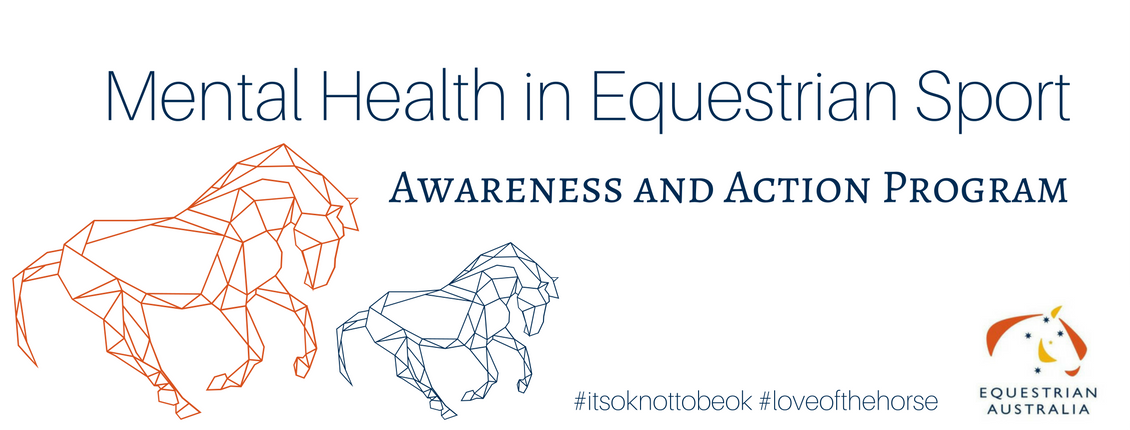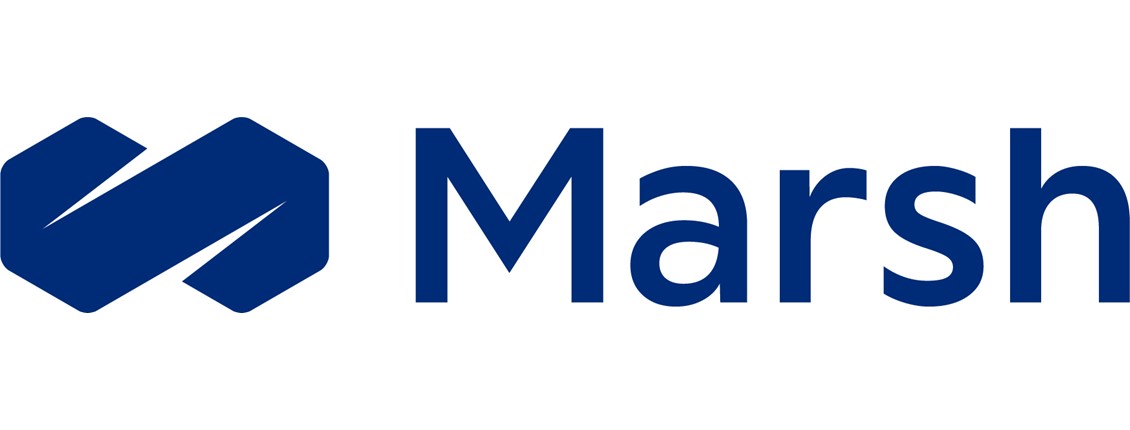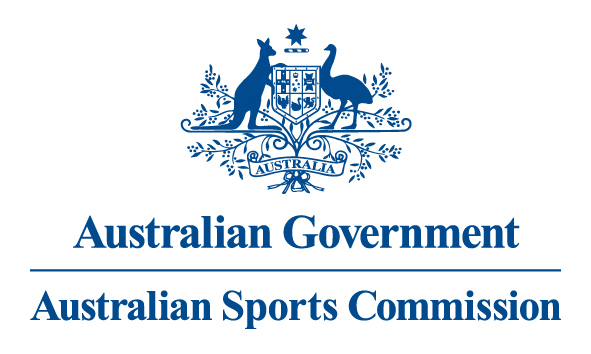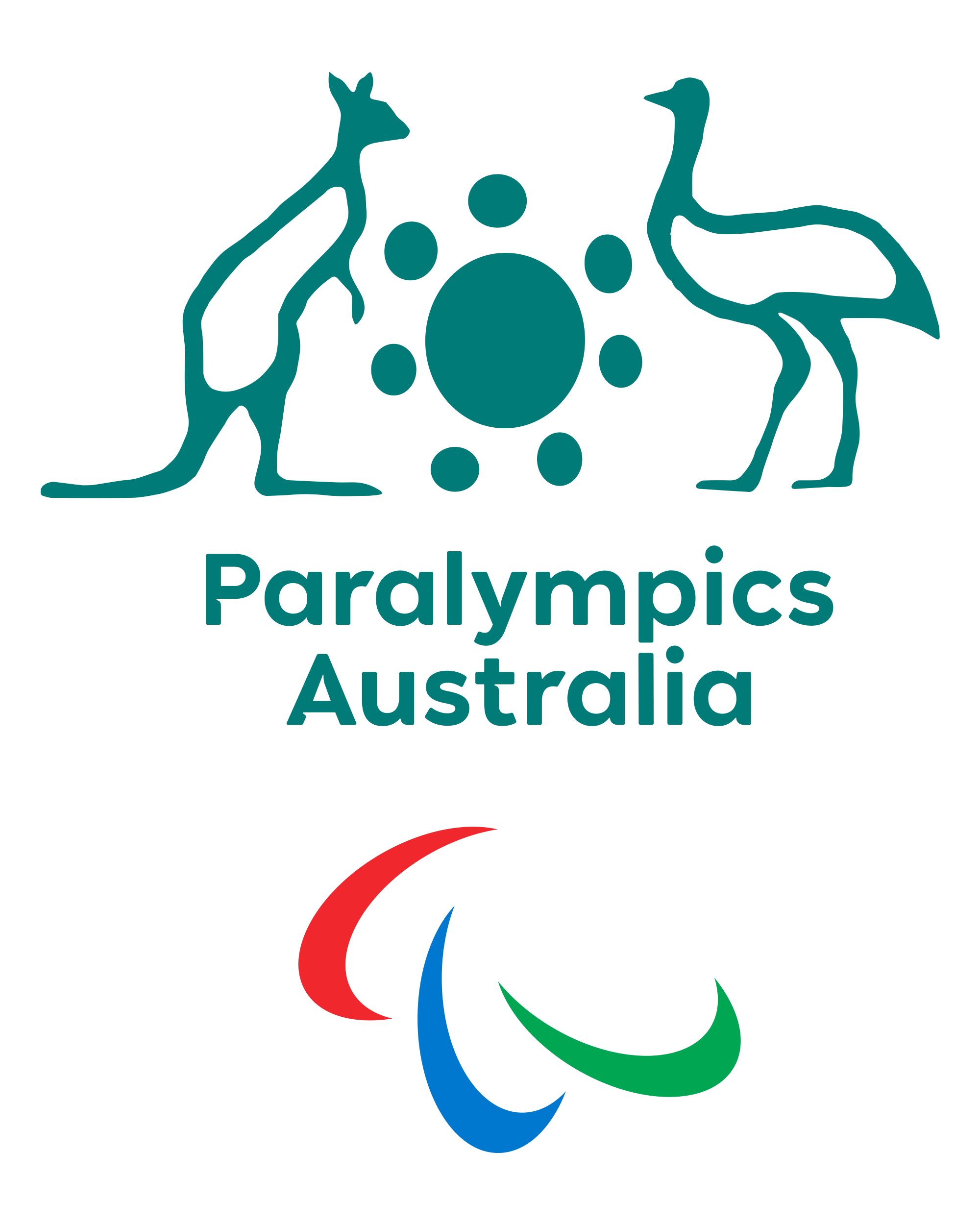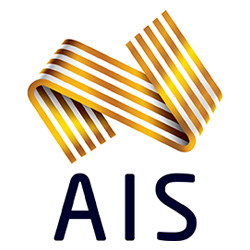The 2007 National Survey of Mental Health and Wellbeing found that in any one year 20% of Australians between 16 and 85 years old had a common mental illness and this increases to 26% in 16-24-year-olds.
Two common illnesses were found to be anxiety and depressive disorders.
There are many different types of mental health conditions and disorders, and a wide range of symptoms within each of them. They can be experienced on a sliding scale from mild to severe, and short-term to longer-term; with some being quite serious.
It's important for everybody to look after their wellbeing. Mental ill-health can happen to anyone, and it can strongly affect a person's behaviour, physical health, relationships, ability to do work, and even their feelings and perceptions of the world. With the right support, things can improve.
Understanding the causes of mental/emotional stress, learning coping skills, and developing emotional and social support networks can help any individual build resilience and deal with stressful situations. Athletes are regularly challenged by stressful events related to their sport participation, and these may occur on top of daily life stresses. One’s ability to ‘bounce back’ to a normal state of functioning, following exposure to stress, is a predictor of good mental health.

Key Messages
- Physical activity stimulates a biochemical response in the brain that influences one’s mental state. Regular physical activity, in appropriate amounts, contributes to personal well-being.
- Sport, recreation, and physical activity can promote and encourage social interaction, which supports good mental health.
- Athletes are subjected to sport specific stressors, as well as stress from everyday life. Good mental health is characterised by emotional wellbeing and resilience to all sources of stress.
- An athlete's state of mind has a significant impact on their athletic performance and vice versa.
- Diagnosis and care of an athlete’s mental health concerns must be considered within the context of sport and life.
Coaches
Coaches can promote mental health and wellbeing by:
- Encouraging and supporting athletes to have a healthy life balance.
- Reducing the stigma around seeking help when there is a problem.
- Understanding stressors faced by athletes, and the impact they can have on mental health and sporting performance.
- Seeking the help of a professional in supporting those athletes with known mental health problems.
The Australian Institute of Sport
The Australian Institute of Sport (AIS) developed a Mental Health in Sport (MHS) Awareness and Action program to help provide high-performance sport staff with knowledge and skills to identify and respond to someone with poor mental health. Participants learn the 4-R model:
- How to RECOGNIZE symptoms of poor mental health in others
- Techniques to REACH OUT and support someone in distress
- How to REFER to a mental health professional and to recognize when this is necessary
- Ways to REMAIN SUPPORTIVE over time
Equestrian Australia Awareness and Action program
Equestrian Australia wants to help boost the awareness around Mental Health in the sporting community where there is currently a lack of information and education provided.
Reducing the stigma around Mental Health illness is essential. It can affect everyone and often individuals are not aware of the condition before it is diagnosed. So let's help through keeping the discussion going in our community.
NEWS! From 14 to 20 May 2018, Equestrian Australia is running a Mental Health Awareness Week within the equestrian community on social media platforms. Stay tuned with the hashtag #MentalHealthAwarenessWeek and feel free, like others to share YOUR story.
- Touching Rainbows (overcoming PTSD)
- Mind coaching for Equestrianism
- How Horse Archery can help regulate your emotions
- Manage Pre-competition Nerves
- How Eventing benefits Mental Health (from British Eventing Life)
- Performance coach John Haime talks about the one thing all equestrian competitors can use more of ...Confidence! [VIDEO] (from Horse Network)
- Australian High-Performance Gymnast athlete Josh DiNucci talks about OCD
- Read this article in the Guardian Australia on the benefits of Equine Therapy
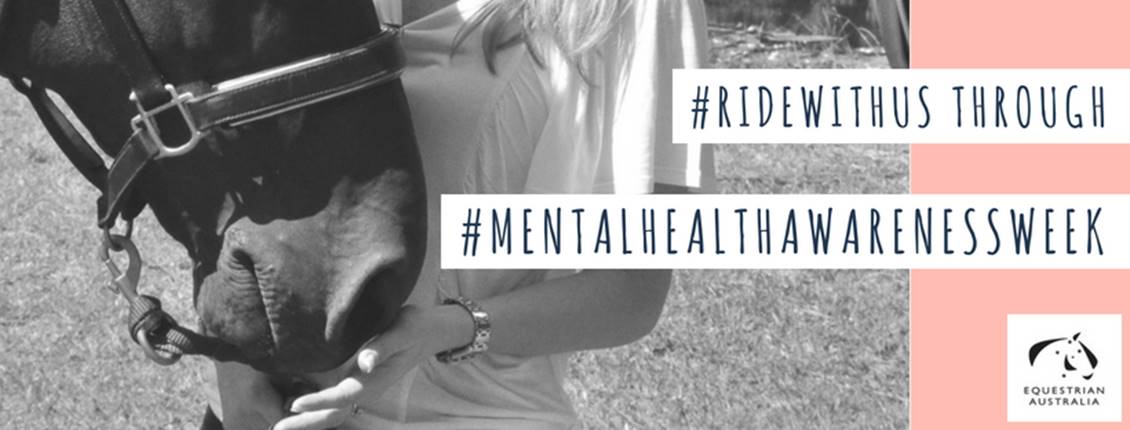
Resources
If you feel you need support, there are options available. Talking to people you trust is a first step, as is seeking professional support. Focusing on self-care and finding peers who have gone through something similar are a few other options.
Digital mental health resources can often be just as effective as talking to someone face-to-face. If you're not comfortable talking to someone in person, that may be the way to go. Whatever you choose, trust is a very important factor.
Websites
- Beyondblue (Depression and anxiety)
- Black Dog Institute (Depression and other mood disorders)
- The Butterfly Foundation (Eating disorders)
- Headspace (Youth mental health)
- Healthdirect (Exercise and mental health)
- Head First NZ (New Zealand Rugby’s (NZR) mental fitness and wellbeing programme with resources and tools)
- One Door Mental Health Sports Network (MHSN) [NSW]. The goal of Mental Health Sports Network (MHSN) is to give people with mental illness opportunities to improve both their mental and physical well being through engagement in sporting activities
- ReachOut (Youth mental health)
- Mental Health First Aid Australia (Mental Health First Aid Australia runs training programs for the community in identifying and responding to mental health problems.)
Telephone services
- Lifeline – 13 11 14
- Kids Helpline – 1800 55 1800
- Mens Line Australia – 1300 78 99 78
- Suicide Call Back Service – 1300 659 467
Online mental health resources
- E-couch - E-couch is a free and fun online program providing evidence-based information about emotional problems (including depression and anxiety disorders) and teaches strategies that may help you to prevent problems and understand yourself better. E-couch is not appropriate for crisis assistance.
- The moodGYM - moodGYM is a free, fun, and interactive program providing information to help you identify and overcome problem emotions related to depression and teaches you how to develop good coping skills for the future.moodGYMis not appropriate for crisis assistance.

